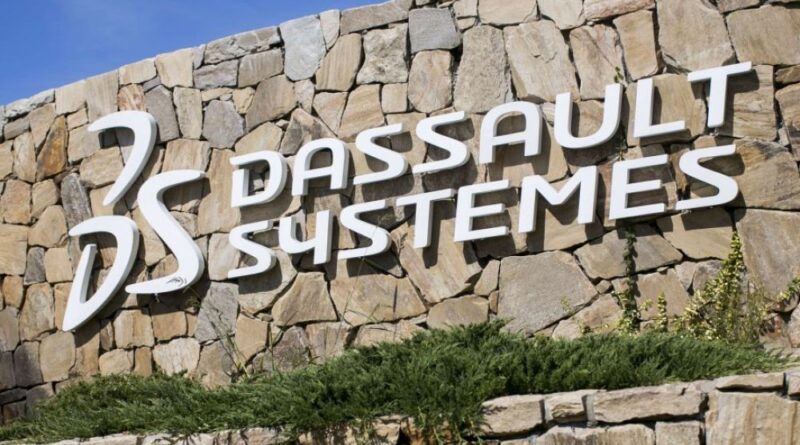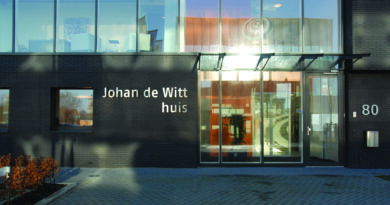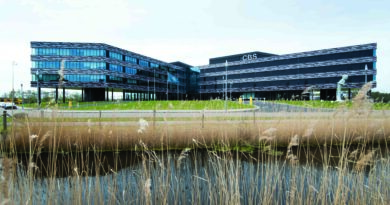Optimize Your Future With 3DS
For this edition of Nekst, we interviewed a former active member of Asset | Econometrics: Christel Opheij. She has always wanted to do something with optimization and consulting. With this in mind, she ended up at Dassault Systèmes where she started working in January 2020 as part of the Delmia Quintiq domain. Dassault Systèmes (3DS) is the 3DEXPERIENCE company that provides world-leading solutions to transform the way products are designed, produced, and supported. In other words, it develops software for 3D product design, scientific simulation, production, but also for logistics optimization. Their software is applicable in all kinds of fields such as natural resources, cities, transportation, and even biological systems and chemistry. 3DS has more than 180 offices in 42 countries worldwide. Furthermore, it has approximately 20000 employees originating from 140 different nationalities. It was founded in 1981 and has become a big multinational. Its headquarters are in Paris, but besides holding an office in ‘s-Hertogenbosch, 3DS is also located in Boston, Shanghai, Los Angeles, Sydney, Dubai, Tokyo, and many other cities. Written by: Jarno Ringhs, Mylan Tran, and Marijn Wolferink
Why did you choose to study econometrics and how did you experience your time with Asset | Econometrics?
“During the last years of high school, I had considered almost every study. One of my teachers advised me to go to med school, because he thought I was social and smart. I went to a few open days to see if it would suit me, but it did not. My dad then advised me to go to as many open days as possible. I followed his advice and at some point, I just started by crossing out all the studies that were not a good fit for me. At first, I wanted to go to a university of technology to study industrial engineering. However, someone there asked me: ‘Have you ever considered econometrics?’ So, I went to an open day of the Bachelor Econometrics and Operational Research in Tilburg and I stuck with it. On that first open day, it was already clear to me that I was not interested in finance. Thus, I eventually chose the Master Business Analytics and Operations Research after finishing my Bachelor’s.” Christel also tells us that during her time in Tilburg, she has been in the Freshmen, Promotion, Orientation & Connection Day, and the LED committee. Therefore, she might be a familiar face for some of you. Furthermore, she has been part of De Kleine Consultant and an active member of the student korfball society for a brief period.
Have you ever been on exchange?
Christel tells us that she has been on exchange but not in her Bachelor’s phase but during her Master’s. At that time, she was thinking about doing a board year at Asset | Econometrics. However, she eventually decided to go on exchange to Peru and she did not regret this decision at all. She adds: “Since this was an extra half-year on top of my Master’s, I could choose any course that I wanted without any constraints. Peru appealed to me, because it has an authentic culture that is completely different from what we are used to and its nature is beautiful too. All in all, it was an extremely fun period.”
How did you come in contact with 3DS?
“After finishing my Master’s in 2019, I was looking for a challenging job in Brabant and I was especially curious about 3DS. So, I sent a message to Eline, a fellow econometrician from Tilburg working at 3DS. She replied enthusiastically and she asked me to have a cup of coffee with her to talk about the company. Her positive story convinced me that I wanted to work at 3DS immediately. On top of that, I found the perfect combination of a quantitative and consulting position at 3DS. Another advantage of 3DS is that its office is in ‘s-Hertogenbosch, close to home.”
Why have you chosen to work at 3DS?
Christel tells us with a big smile why she enjoys her time at 3DS so much: “The average age of employees at 3DS in the Netherlands is approximately 40. However, I have a lot of young colleagues with whom I participate in fun activities. We are a close-knit group of colleagues who see each other very often. I have always enjoyed organizing activities. So it is no surprise that I instantly joined the staff association in my first month. Before the pandemic, we had a Friday afternoon drink every week.” Or as we know it in student ‘language’: de VrijdagMiddag Borrel. She continues: ”Next to that, we rent a sports hall every Tuesday evening to sport together. We play various sports like badminton or football. Moreover, we have multiple board game nights and we celebrate birthdays together. Now, during the pandemic, we still organize online escape rooms and pub quizzes, or we have coffee calls. In short, the social aspects of working at 3DS is also one of the main reasons why I wanted to work here.”
When we asked her how 3DS differs from other companies in its sector, she replied: “I think 3DS differentiates itself from others by creating custom-made applications. Our products are unique, because 3DS has its own software. For every problem, we have a special solution. You can compare it to a pie. The base consists of our base software. On top of that, you have a specific part related to the industry and the kind of problem you need to solve. As decoration, we build a customer-specific solution. In conclusion, there are a couple of other companies that offer more standardized solutions but we create a lot of custom-made solutions.”
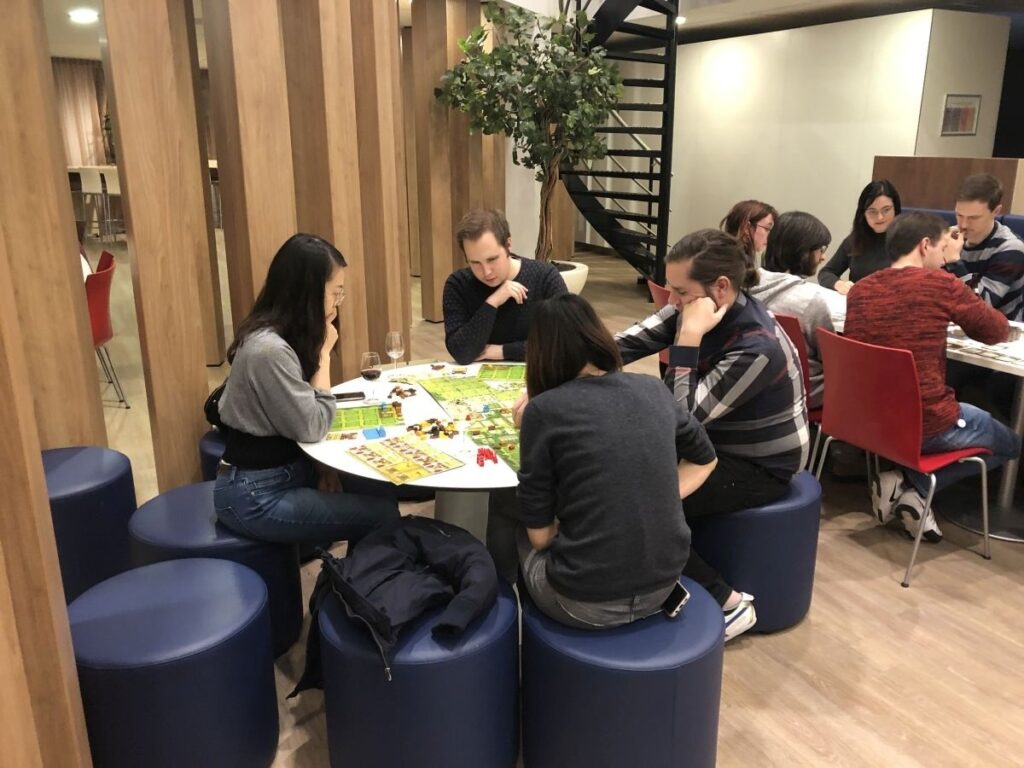
Can you tell us something about your role within 3DS?
Christel works in the DELMIA Quintiq department of 3DS. DELMIA Quintiq is one of the domains of Dassault Systèmes, which focuses on Supply Chain scheduling and optimization. Within services, there are three different functions: the Software Expert who specializes in building the applications for the customers, and the Operations Research (OR) Scientist who is even more related to econometrics, because he works on building the optimizers to find the best solutions. Finally, there is the Industry Process Consultant. Christel deliberately chose the last function because of the contact with the customers, stating: “I wanted to be an Industry Process Consultant, because this function requires a lot of social interaction and I enjoy working with many people. Moreover, I am an intermediary between the customer, the Software Expert, and the OR Scientist.” Christel elaborates by guiding us through her working process: “First, I do analysis sessions with the customers to understand their requirements for the system. Then, I think about the best solutions for the applications and document this. Hence, it is important for a consultant to also know the possibilities of the software. Then, I will work together with our Software Expert, who will create the software code. The Software Expert does not focus on the presentation of the application itself. This is where I come in. I will check in the application if the system that is built by the Software Expert works by testing all corner cases. In the end, I will train the customers in using the application.”
Could you tell us something about your projects?
“Until now, I have only worked on one project. This is a workforce planning project for a Spanish client, which takes around two years. Thus, it is not the case that we do a lot of different projects in a year. 3DS has a standard application that can make schedules and planning, but every customer has particular needs.” Christel gives us a more extensive explanation of the project: “A lot of business rules are already in place by our standard workforce planning functionality, such as, that an employee can only work two nights shifts in a row or a maximum of 50 hours a week. The sector in which my customer is working is very strictly regulated. Hence, we needed to build many additional rules, for example, that an instructor can work maximally 25% of his time as an instructor. Strict competencies are another example of these rules. To keep your competency for a certain task A, you need to work at least a certain amount of time on task A during for example the last 60 days. Hence, we needed to track all the time worked on specific tasks and build extra warnings that help the planner. Moreover, we also need to steer the optimizer so that it makes sure employees keep their competencies. These kinds of restrictions are all custom-made for each client. Hence, it is important to remain in close contact with them and to test it together with the customer afterwards.”
Can you choose the projects you have to work on, or are they just assigned to you?
“You are able to let your manager know your preferences. Of course, they then have to take a look at what projects are available. When a new project comes up, it gets forwarded to everyone and you can respond and let them know that you want to do it. For example, I have studied in Peru. So, I speak Spanish which leads to the fact that I am currently working on a Spanish project.”
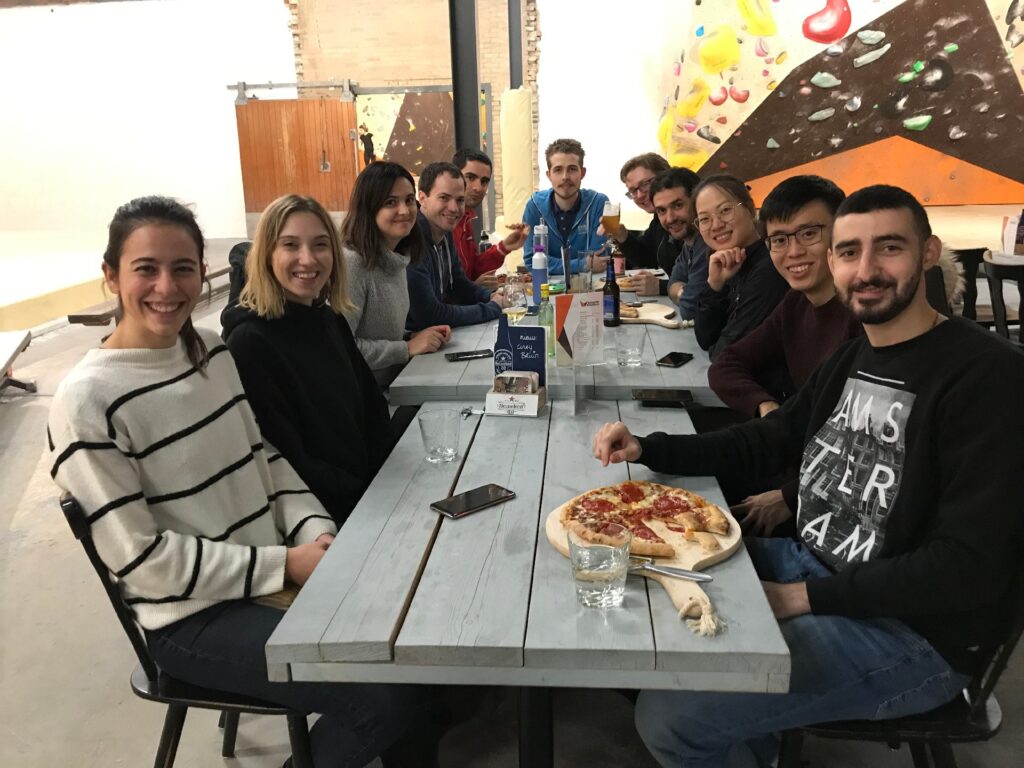
How does a working week look for you?
Christel gives us an example of an ordinary day at work: “This morning, we had a daily standup with everyone. Thereafter, I had contact with a customer who had questions about the program that we developed for them. Then, a customer with an important data issue contacted me. I had no idea how to solve the problem, so I contacted the Software experts. This was followed by a customer meeting of a couple of hours during which we discussed and tested the Key Performance Indicators (KPI) that we use for optimization. Afterwards, I had a call with two colleagues to discuss the approach of another topic that we are working on and I had another short call with a customer. As you can see by looking at my schedule, I have worked a bit on my own to prepare everything, but I have mostly been in contact with everybody else.”
Does the current situation with COVID-19 hinder you in your work?
After a little bit of thinking, she comes to the conclusion that the coronavirus does have a significant influence on her job. She says: “Normally I would have been in Spain a lot for my project. However, when I started on this project back in March, travel restrictions were already imposed. Particularly during the beginning and the end of the project, it is really helpful to sit next to the client and take a look at the screen together. We usually visit them once every three weeks. Nowadays, this is of course not possible and we have to do this digitally. This makes the work more difficult sometimes. I also really miss the coffee and spontaneous moments with my colleagues at the office a lot. Nevertheless, the consultation with my colleagues does not differ from the normal situation. Our team is very international consisting of a Dutch consultant, two French ones, a German one, and a Spanish one. If I wanted to speak to them before COVID, this had to be done through Skype anyway.”
Does 3DS provide training or courses to develop yourself even further?
“When I started at 3DS, the first five weeks were an onboarding process. In the first two weeks, I worked through many e-learning courses to learn the DELMIA Quintiq software. This software is object-oriented, so I had to discover how to work with object-oriented programming (OOP). I learned how to create, drag, and drop things into the application to make it attractive and user friendly. In the third week, I participated in a highly interesting and exciting programming challenge where I was placed in a team with other colleagues. It was quite stressful, to be honest, because we had to build an entire application in one week. Nevertheless, at the end of the week, we were all very satisfied that we had succeeded in building a working application. In week five, I also did a similar challenge, but this one was in the consultancy branch. This time the emphasis was on properly presenting everything. As a consultant, it is important to deliver clear and engaging advice to your client to make the technical side of the software easier to understand. 3DS really accentuates the importance of continuous learning. We have a 3DS University with a wide variety of training offerings, both job-specific and related to soft skills. On top of that, every year, the Development Week is organized. This is a week full of trainings that you can choose from to stimulate your personal development. This year, I followed courses on workforce planning since it was the subject of my first project. However, I also want to learn more about logistic planning in order to start working on those kinds of projects. Finally, receiving and giving feedback is also very important within the company to lift each other to a higher level.”
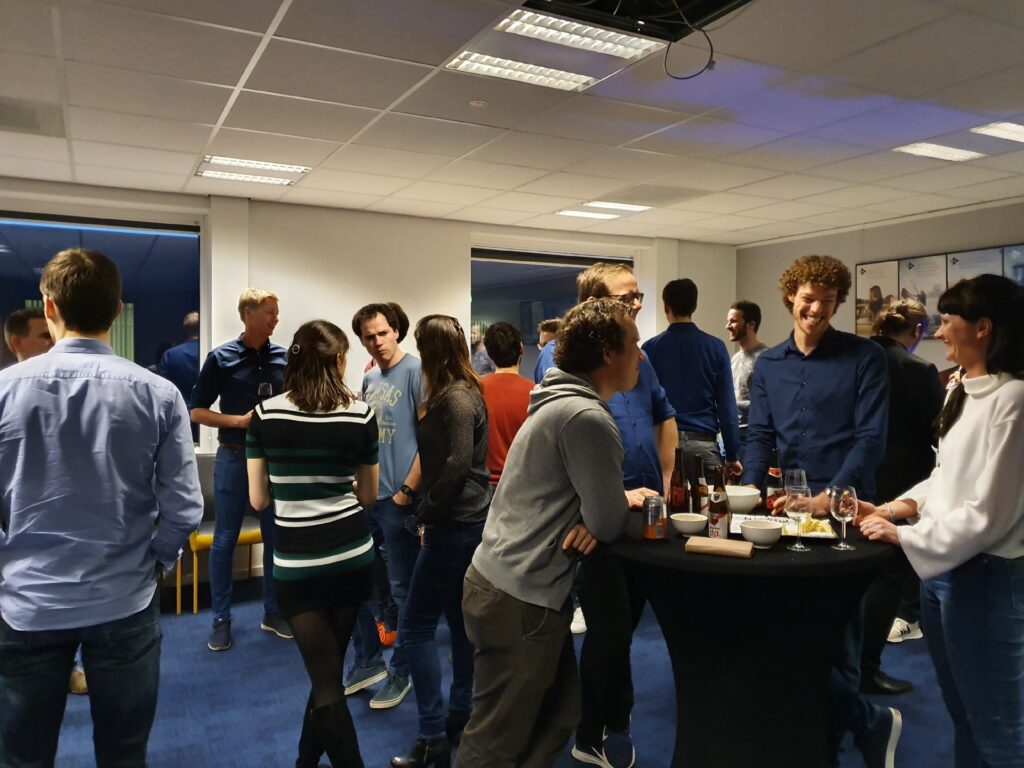
Are there many different career opportunities within 3DS?
“3DS works in a level structure. In my department, you start at consultant level 0, from which you can grow to consultant level 1 and 2. Ultimately, you can take up more responsibility by becoming a lead consultant who supervises an entire team. You can also become a consultant who looks after multiple teams and projects and only interferes with problems of high difficulty. Next to consulting, you can go to the sales department or work your way up to management.” Christel reaches a conclusion by adding: “So, you can see that there are endless possibilities within 3DS depending on your preferences.”
Did you have to learn new things for your job?
“In the EOR program, we learn a couple of different programming languages and this gives you the ability to learn other programming languages and ways of thinking quite easily. Nevertheless, you still need a short course to learn the language of the 3DS systems. The study connected very well with the technical part of my work, but not with the consultancy part. We only had one course in the whole program that focused on improving your soft skills. Therefore, I also joined De Kleine Consultant. The skills that I developed while working there were very useful for my current job. I had to do a lot of interviews and other consultancy related work which gave me a big advantage.”
What kind of advice would you give to the econometricians in Tilburg who are about to enter the labor market, based on your experiences?
Christel thinks this is a difficult question, which it is for anyone who just graduated not long ago. After a moment of thought, she says: “I think it is important to dive deeply into the matter, think about your interests and skills. Talk to people who are already working at the company of your interest to get a better idea of the company’s activities and working atmosphere.”

